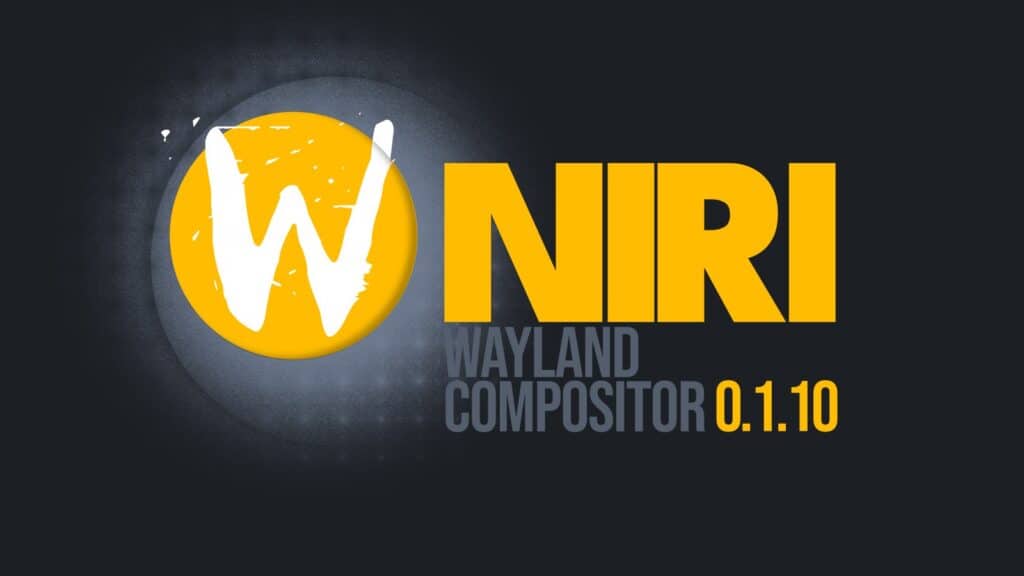Niri, the scrollable-tiling Wayland compositor, has just released version 0.1.10, bringing several exciting updates and improvements.
For those unfamiliar, it is a new rising star in the tiling compositors’ field. The main selling point is that in Niri, windows are arranged in columns on an infinite strip that expands to the right, and opening new windows never causes existing ones to resize. Now, let’s see what the new version has in store.
Key Highlights of Niri 0.1.10
While full floating window support isn’t here yet, Niri has taken a significant step toward that goal. Users can now move windows by dragging them via their title bars or holding the modifier key while clicking anywhere in the window.
To prevent unintentional layout changes, the windows “rubber-band” slightly before detaching from their original position. This feature also works on touchscreens, allowing both window movement and resizing with touch gestures.
Moreover, Niri 0.1.10 supports the pointer location hint request, particularly useful for apps like Blender. This allows the compositor to synchronize its pointer location with the final position requested by the app, enhancing compatibility and user experience.
The update also introduced new commands for laptop lid opening/closing and tablet mode switching. These can trigger specific actions, such as automatically enabling an on-screen keyboard when a convertible laptop enters tablet mode.
Internal laptop monitors can be automatically disabled when the lid is closed, and workspaces shift to external monitors. If needed, users can override this behavior using a new debug flag.
Niri 0.1.10 also adds new cursor-hiding options. This means you can now hide the pointer while typing or after a certain period of inactivity. Additionally, improvements were made to ensure the pointer reappears on the mouse button press but stays hidden for programmatic or keyboard-driven movements.
Niri’s input configuration has seen several updates. Notable additions include a new trackball configuration section, settings for scroll buttons, and scroll factor adjustments to fine-tune the scrolling speed.
The other notable improvements that are also worth noting include:
- Tablet input no longer automatically follows monitor rotation, ensuring convertible laptops work seamlessly.
- The GTK Access portal has been explicitly set, improving compatibility for apps requiring webcam or microphone access.
- Niri now preserves the active workspace state across monitor disconnections and reconnections, ensuring a smoother user experience.
- Support for running Niri as a dinit service has been added.
Lastly, several bug fixes have also been included, addressing issues like animation jumps, memory leaks, and occasional app freezing, as well as enhancing the stability of lock screen clients and monitor handling.
Check out the release announcement for more information about all novelties, where you will also find a few videos showing the new features of the Niri 0.1.10 scrollable-tiling Wayland compositor.

I really like the Niri workflow, with scrollable tiling. Also PaperWM extension is good, for people running Gnome.